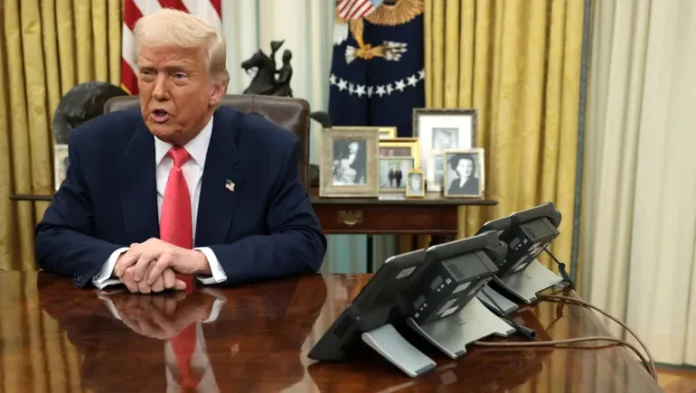The White House announced on Thursday afternoon that it will suspend tariffs on all imports that comply with the United States-Mexico-Canada Agreement (USMCA) until April 2. This decision extends to imports from Mexico and Canada that adhere to the trade deal’s requirements, including an exemption for car imports from both countries.
President Donald J. Trump made adjustments to tariffs imposed on imports from Canada and Mexico to minimize disruption to the automotive industry, recognizing the structure of the automotive supply chain that aims to bring production into America. This move was praised by FMI – The Food Industry Association, which welcomed the pause on tariffs related to products covered under the USMCA, including food and agricultural goods.
Roughly half of Mexico’s imports to the U.S. are USMCA compliant, while nearly 40% of imports from Canada meet the requirements. The U.S. is preparing to implement a universal reciprocal tariff policy on April 2, coinciding with the end of the tariff pause.
President Trump and Mexico’s president, Claudia Sheinbaum, reached an agreement on a tariff pause on Thursday morning. Trump cited respect for Sheinbaum and praised her cooperation in addressing fentanyl trafficking. Sheinbaum highlighted the ongoing collaboration between the two countries on migration and safety issues, emphasizing the need to reduce illegal trafficking of fentanyl and weapons.
Overall, the decision to suspend tariffs on USMCA-compliant imports from Mexico and Canada until April 2 reflects a strategic move to support the automotive industry and promote economic cooperation between the three countries. This action aligns with efforts to ensure Americans have access to essential goods at affordable prices while maintaining trade relationships with key allies. The upcoming implementation of a reciprocal tariff policy underscores the administration’s commitment to fair and balanced trade practices.
In conclusion, the tariff pause announced by the White House demonstrates a nuanced approach to trade policy that considers the intricate dynamics of the automotive supply chain and the broader economic landscape. By extending this pause to imports from Mexico and Canada, the administration is signaling a commitment to fostering mutually beneficial trade relationships and supporting key industries. The collaboration between President Trump and President Sheinbaum underscores the importance of international cooperation in addressing shared challenges and promoting economic prosperity. As the April 2 deadline approaches, stakeholders will be closely monitoring developments to assess the impact of the reciprocal tariff policy and its implications for trade dynamics in the region.




